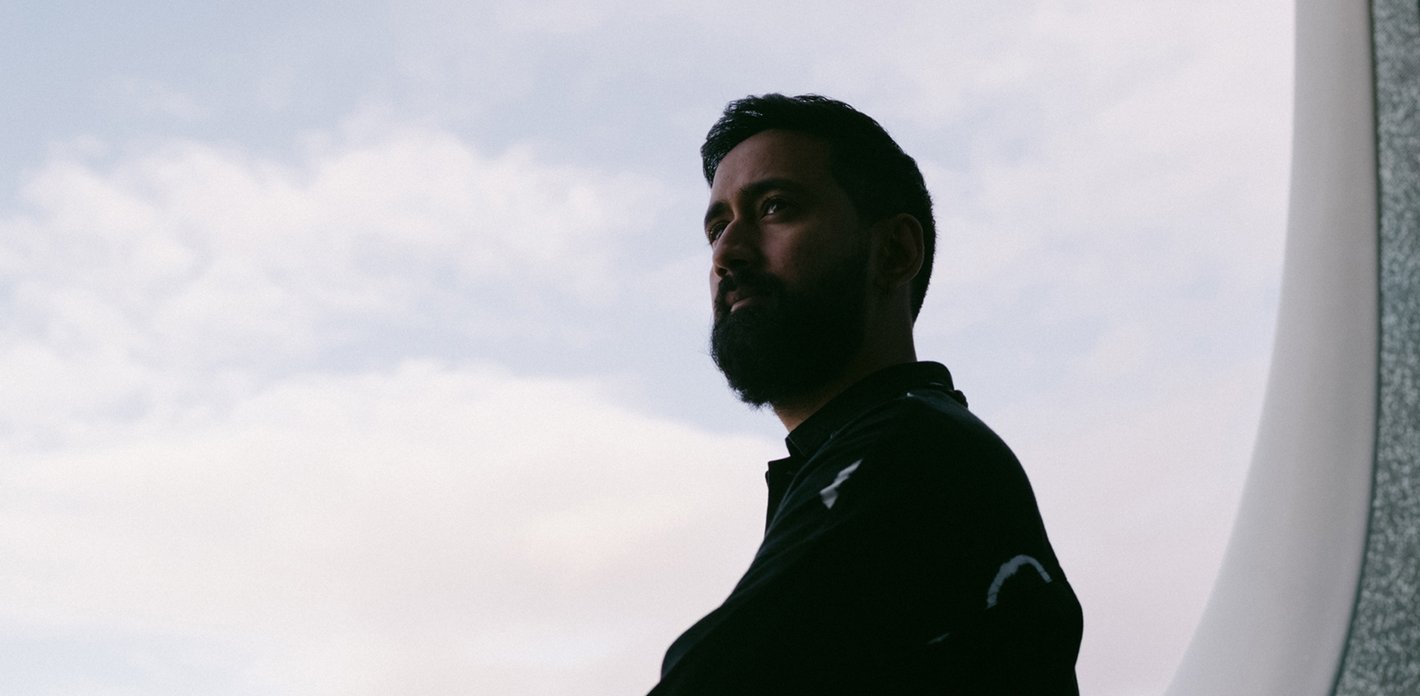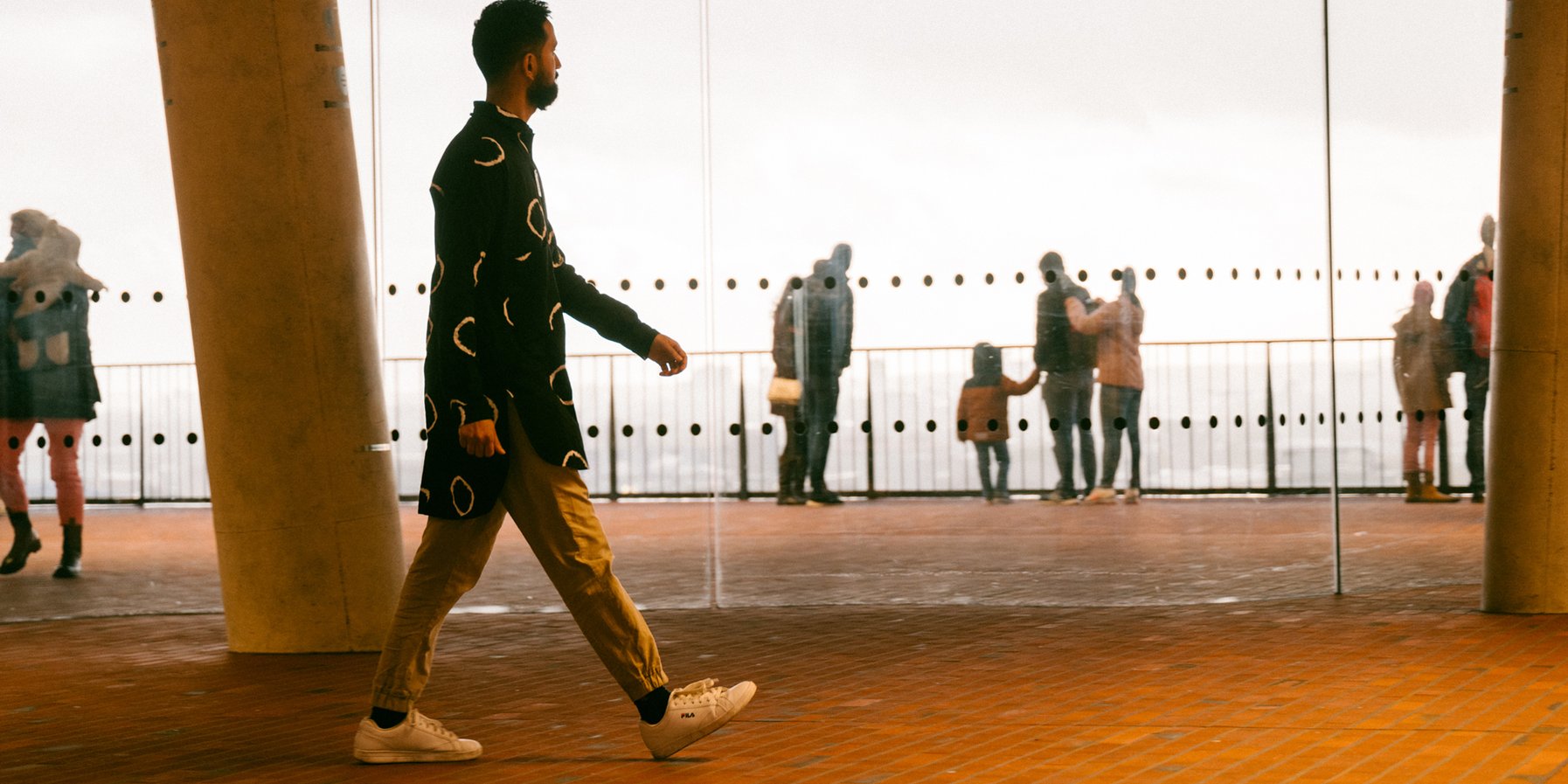The series: Innerviews
Inwards – in the »Elbphilharmonie Innerviews«, artists explore the Elbphilharmonie in their own unique ways, letting their thoughts run free. The result: special insights into the spaces of the concert hall and a rare opportunity to get to know the artists personally beyond the stage. In 2022, the drumset was crowned instrument of the year – a great reason to talk with a very special percussionist.
»In music – especially in improvisation – the mind and body sometimes become one«, explains Sarathy Korwar. In this Elbphilharmonie Innerview he talks about the intimacy of music, about cultural self-discovery and about what Indian classical music and jazz have in common. He and the music are always in movement. They never stand still.
»I grew up in India, learning to play the tabla while listening to The Doors and Nina Simone.«
Sarathy Korwar
The Elbphilharmonie’s »Innerviews« series is supported by our Principal Sponsor Julius Bär.
Elbphilharmonie Innerview with Sarathy Korwar
Music knows no borders :Elbphilharmonie Innerview with Sarathy Korwar
»My East is Your West« is the title of one of Sarathy Korwar’s albums. This concept of cosmopolitan music culture has become a guiding principle for him: through his Indo-jazz, the formally trained tabla player and percussionist not only played his way into London’s clubs, he also explored central questions relating to identity, culture clashes and new approaches.
Born in the USA, raised in India and now based in England, the extraordinary percussionist blends political rap and traditional Indian sounds, electro and jazz, hip-hop grooves and street sounds from modern mega-metropolises like Mumbai. That is the sound of music that knows no borders.

-
About Indian classical music
There are many reasons why Europeans are so fascinated by Indian music. While European music is based on chords, Indian classical music is based solely on melody and rhythm, which can be accordingly complex. Ragas have a fundamental importance in Indian music. They are comparable to the European musical scales and yet they’re also much more than that: the western system only has major and minor, while Indian music has 72 ragas! They portray the entire spectrum of human emotion. That is achieved through the artful arrangement of notes and a particular dramaturgy: from a slow, improvised introduction and the establishment of a rhythmical pattern and melodies, to a dynamic finale.
The raga system emerged around 2000 years ago, and at its roots, India’s music is spiritual: God is sound and can be experienced in sound. The best-known Indian instrument is, without doubt, the sitar. The legendary sitar player Ravi Shankar opened the door to the world for the lute-family instrument in the 1960s, and inspired classical artists like the violinist Yehudi Menuhin, jazz musicians like Miles Davis and bands like The Beatles. The most important rhythmical »tool« of north-Indian music is the tabla, a pair of tuned hand drums that has also reached the charts, from jazz to pop, in recent decades. The tabla is played with the fingers of both hands and allows a very subtle fine tuning of its rhythmical sounds.
»Indian classical music and jazz are both ever-evolving and reforming styles of music. They rely on new musicians to constantly add their influences and take the music somewhere it has not been before«, says Sarathy Korwar: »Both rely on structured improvisation to stay fresh«. And so he breathes new life into his favourite music: he endows jazz with the powerful rhythms of northern India, and spices up the musical tradition of his homeland with the energy of London’s club culture.
»Sarathy Korwar is a leading figure in this new, exciting jazz scene in London. His concerts are among the most thrilling shows I have ever experienced: a couple of acoustic musicians – and an entire club dancing wildly.«
Anoushka Shankar

In the present :On the intimacy of musical improvisation
»Improvisation is a personal statement of where I am in the present. Honest and deeply intimate«, explains Sarathy Korwar. He describes how the body and mind can become one in the process: »It’s a special, beautiful and fleeting feeling ... but I’m always looking for that moment.«
The young musician’s Upaj Collective, which brings together classical Indian instrumentalists and jazz musicians from southern Asia, is dedicated to exploring the special power of musical improvisation. The name comes from the Hindi word »upaj«, which means »improvisation«. Back in November, Korwar performed in the Elbphilharmonie with this unique ensemble as part of the Anoushka Shankar »Reflektor« festival

Lebendig bleiben: Improvisation und Weltoffenheit
For Sarathy Korwar, the direct and free expression in improvisation is related to the unique dynamic between cultural diversity and self-definition: »Places like London and Hamburg, which are diverse cities, have people trying to figure it out every day, building new relationships and homes, staying spontaneous and always searching.« A beautiful image: the city and its inhabitants improvise together, as in the music – they develop and evolve, they go on living.
Text: Julika von Werder; last updated: 20.01.2022
Translation: Seiriol Dafydd









